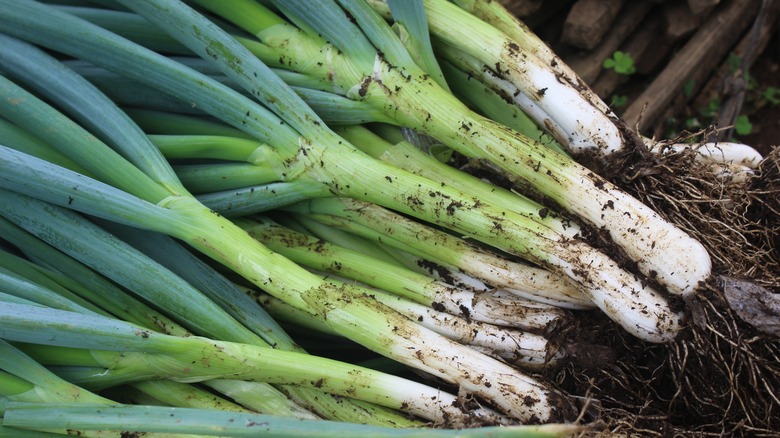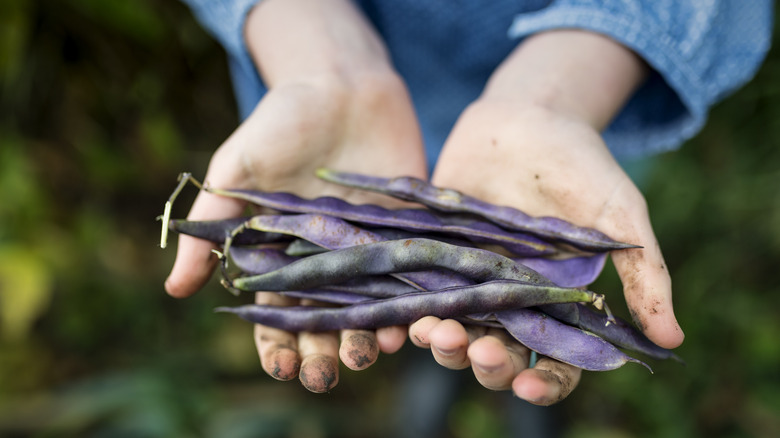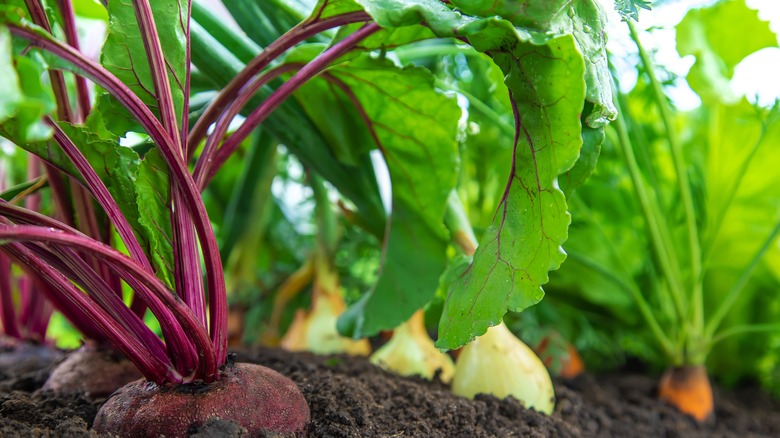Garden Favorites You'll Want To Avoid Growing Near Green Onions
Green onions, also known as scallions, are beloved garden staples that grow well throughout the continental United States. While onion's ability to repel some pests makes them a popular choice for companion planting, some vegetables should not be grown near onions. Many people believe that asparagus, sage, and legumes like peas and beans should all be planted away from onions to ensure the best harvest.
Both Allium fistulosum and Allium cepa are sometimes referred to as green onions. While Allium cepa will eventually form a bulb if left in the ground, Allium fistulosum is nonbulbing. Both species grow best in full sun and generally require about 1 inch of water a week to thrive. Loose soil with plenty of organic material and a pH between 6 and 6.8 is ideal for growing onions. While different types of onions require different amounts of daylight to form bulbs, green onions are grown for their stalks, so day length is far less important, though it's best to avoid varieties that form bulbs too quickly.
Green onions should be planted away from peas, beans, asparagus, and sage
While there is some debate over how detrimental it is to plant legumes and sage near onions, most gardeners opt to avoid putting them next to each other as green onion, as well as other alliums, have a reputation for being allelopathic, which means they produce chemicals that prevent some other plants around them from thriving. The compound ajoene, which exists in members of the allium genus, is the likeliest culprit for inhibiting the growth of some nearby plants. While scientific attempts to conclusively show many of these relationships have been mixed, many gardeners opt to err on the side of caution and avoid planting onions too close to plants they have a reputation for damaging.
The problem with planting asparagus and green onions together goes beyond a possible allelopathic relationship. Asparagus is a perennial plant that grows from a shallowly buried crown. As asparagus grows best when this crown is left undisturbed, planting and harvesting onions too closely to it can easily disturb the asparagus roots and crown. The West Virginia University Extension considers onions an excellent companion for asparagus though, so gardeners may want to experiment for themselves to decide how closely to grow the two.
Where to plant green onions
While the number of vegetables that onions have a possible negative interaction with may give the impression that green onions should be planted alone, onions and other alliums are actually considered excellent companions for some plants. It's often recommended to plant types of onions near roses. In a vegetable garden, green onions are also viewed as good companion plants for beets, carrots, and cabbage.
Green onions are good companion plants for these vegetables because members of the allium family produce compounds that repel pests, including insects and microbes. These strong-smelling compounds may mask the smell of nearby plants, hiding them from pests. Green onions are known to repel pests including aphids, slugs, and carrot flies, and may also keep them away from nearby vegetables. Onions also grow well with these plants because their roots grow at different depths so they are unlikely to disturb each other.


